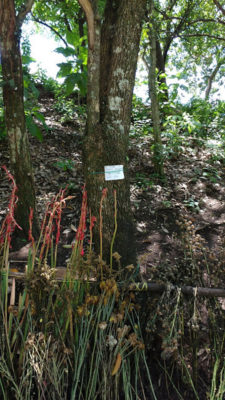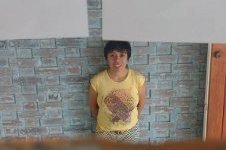Search
To search for an exact match, type the word or phrase you want in quotation marks.
A*DESK has been offering since 2002 contents about criticism and contemporary art. A*DESK has become consolidated thanks to all those who have believed in the project, all those who have followed us, debating, participating and collaborating. Many people have collaborated with A*DESK, and continue to do so. Their efforts, knowledge and belief in the project are what make it grow internationally. At A*DESK we have also generated work for over one hundred professionals in culture, from small collaborations with reviews and classes, to more prolonged and intense collaborations.
At A*DESK we believe in the need for free and universal access to culture and knowledge. We want to carry on being independent, remaining open to more ideas and opinions. If you believe in A*DESK, we need your backing to be able to continue. You can now participate in the project by supporting it. You can choose how much you want to contribute to the project.
You can decide how much you want to bring to the project.

The existence of the human being could be perceived as linear. Time, in turn, is explained in a circular manner (cyclical). This rhythmical repetition of units of time and events (winter, summer, life and death) has given rise to collective events that dialogue with existences greater than one’s own. These events of inter-temporal connection transformed into rituals or ceremonies in which the exact time is stopped to give way to the rhythm of the ritual itself. In it the present communicates with the past and predicts the future. These events are a periodic invitation to share moments of an interactive, spiritual and psychological nature that help us to grow, adapt, or renew ourselves. To create agreements and assimilate processes. Ceremonies become seeds, an incubator ideas and the cohesion of communities, through psycho-emotive experiences. In this way, the participation in ritual activities represents a sort of immersion in states of communication, apprenticeship, and transformation.
Based on these suppositions I propose, under the name of “Invocaciones para encarar el desastre”, a series of actions oscillating between the performatic and the ceremonial, with the aim of becoming a collective work for all those who want to become involved, as a provocation for participatory transformations recording the content of the strong and lasting peace agreements of Guatemala.
The first “Invocation to confront disaster” took place on 29 December 2015 in the city of Guatemala, during the anniversary of “the peace agreements”. Culminating that day, with a personal ceremony of sadness and invocation in the face of the incapacity and inefficiency of the actions carried out during the social movements of the Guatemalan people in 2015
Before 29 December 2016 various “Invocations to confront disaster” will take place. The instructions are the following:
1.Choose a reverential space, of at least 3 x 3 metres and prepare a ceremonial ambience.
2. Gather together, friends and acquaintances, who want to participate in the event.
3. Designate one or two of the participants to document in photographs or drawings “all the activity”.
4. Situate the others facing each other on a violet coloured rug.
Provide those attending with a copy of the instructions and read the following text.
This territory is history, people, wealth and poverty. With the power of ritual we unite the past and the future. In 1996, after a documenting our accord, we promise peace. Today when the same illnesses, as before, persist. We ourselves provoke peace, we plea for:
The pain of being brothers separated by culture, colour and money for the pain of being brothers and not sharing the same rights.
The pain of living behind bars, imprisoned and silent.
The pain of not knowing the deaths of war, nor seeing justice.
The pain of growing up makes it difficult for some and easy for others.
The pain of impotently seeing that poverty grows ever greater.
The pain of education far removed from the villages and unjustly close to the cities.
The pain of seeing our people without an opinion or the pluck for participation. The pain of unjust laws created to entangle.
The pain of knowing what we know, without dreaming how to change 20 years of peace without peace.
5. Select one or two of the aforementioned “pains”, about which all those present want to plea. Place yourselves in the position of greatest reverence or respect that you know.
6. Collectively concentrate on the petitions accorded, for at least 10 minutes and a maximum of 20.
7. On ending write or record the participants’ testimonies of the experience. You can use these questions: What did you think on arriving? What do you think now? What did you feel during the invocation-oration? How will I continue to plea for issues like the ones of the experience today?
You can repeat the activity as many times as you want. You can share these instructions, so that other people can participate. Send the images and testimonials (written or in audio) to the email: invocacionesparaeldesastre@gmail.com

A Latin from the hills and observer by profession. She endeavours to de-programme behaviours and promote clarifying activities. She lives between preoccupation and occupation.
"A desk is a dangerous place from which to watch the world" (John Le Carré)